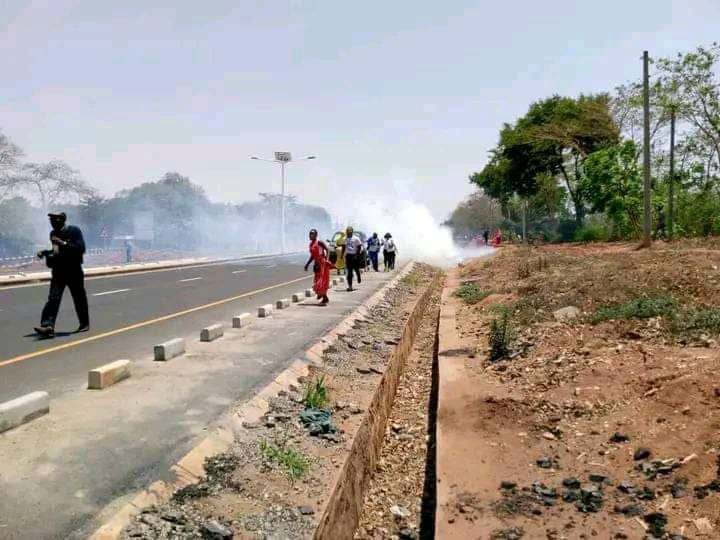By Burnett Munthali
Police officers have used tear gas to disperse supporters of the DPP, UTM, AFORD, and UDF political parties gathered at Area 30 in Lilongwe. The crowd had assembled in anticipation of the arrival of UTM Secretary General Patricia Kaliati, who was scheduled to appear following her recent arrest.
Kaliati, a prominent figure in the UTM party and a well-known political figure, was detained yesterday and has since been held at Lingadzi Police Station. Her arrest has sparked a wave of concern and protests from supporters, who gathered in solidarity, demanding justice and fair treatment for their leader.

Eyewitnesses reported that supporters gathered peacefully but were soon met with resistance from police forces, who deployed tear gas to disperse the crowd. This incident has raised concerns regarding the treatment of opposition party members and the rights of citizens to peaceful assembly.
Speaking on condition of anonymity, some protesters expressed frustration, claiming that the tear gas was used excessively and without sufficient warning. “We were here to show support for our leader,” said one UTM supporter. “We didn’t expect the police to respond in this way, especially when we were peaceful.”
The use of force by police has prompted criticism from various rights groups and activists, who argue that such measures suppress democratic freedom. This event marks another contentious incident in Malawi’s political landscape, where tensions continue to rise ahead of the next general elections.
As the situation develops, calls for calm and restraint have emerged from civil society organizations, urging all parties to engage in peaceful dialogue. Supporters of the UTM, AFORD, and UDF are expected to continue advocating for what they see as their democratic rights, even as authorities emphasize the need to maintain public order.
The arrest of Kaliati and subsequent dispersal of her supporters is likely to intensify discussions about freedom of assembly and political inclusivity in Malawi’s democratic process.


